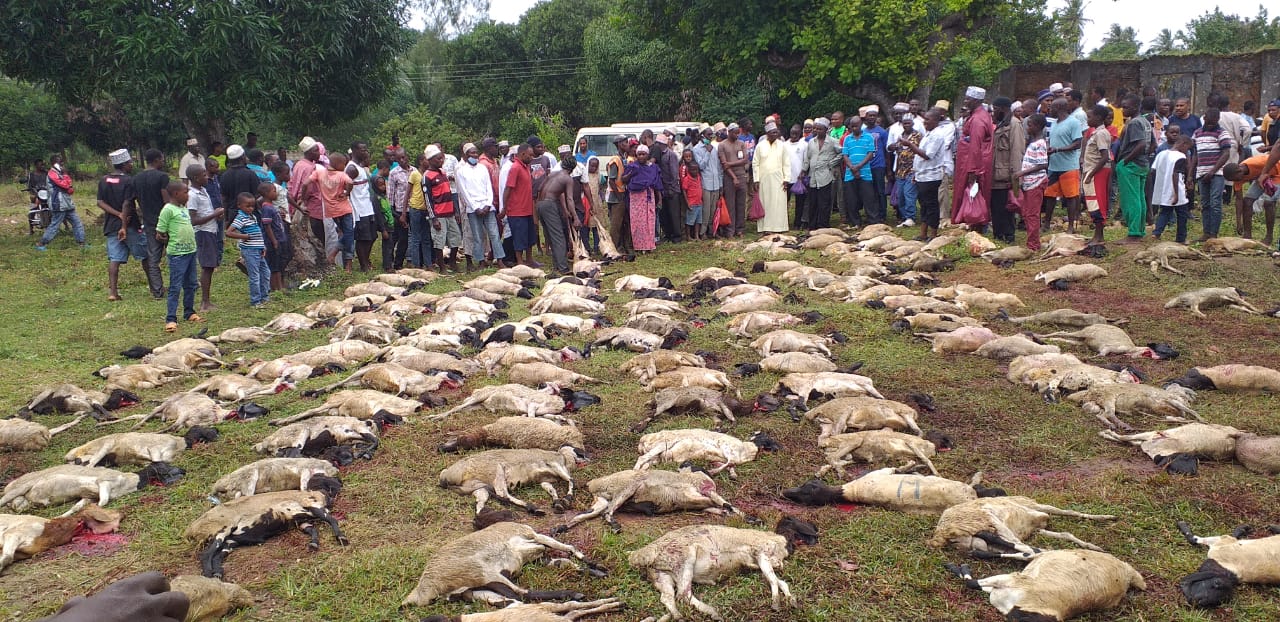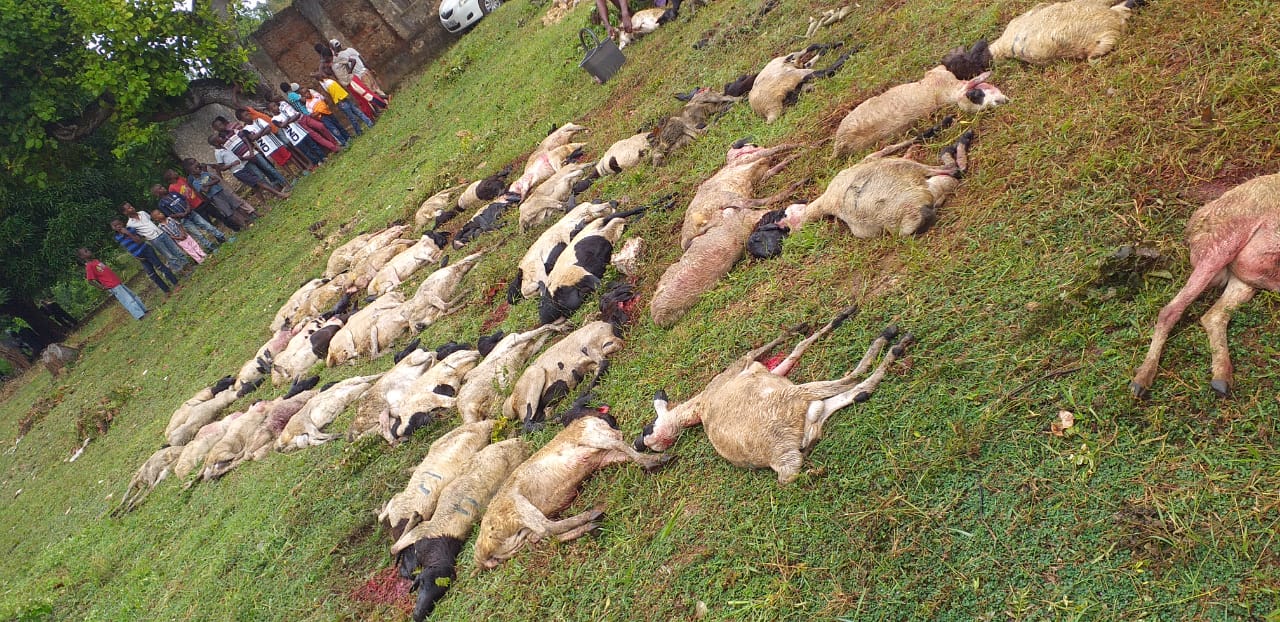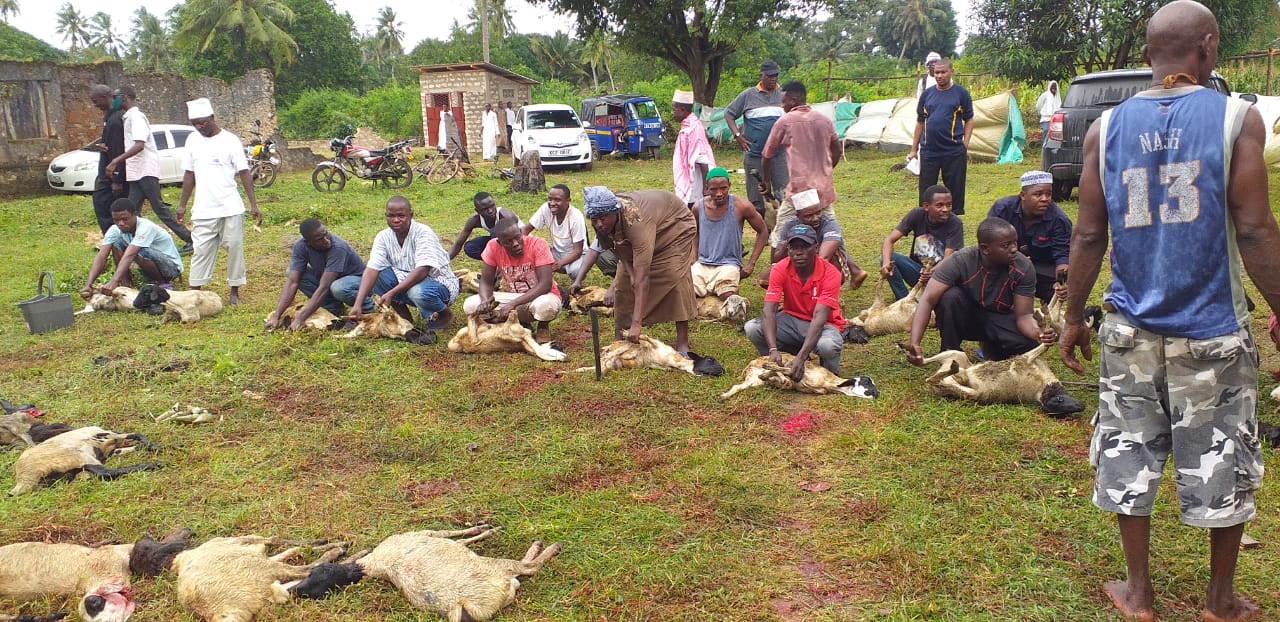Definition of Udhiya
Udhiyah refers to the animal (camel, cattle or sheep) that is sacrificed as an act of worship to Allah, during the period from after the Eid prayer on the Day of Nahr (Eid al-Adha) until the last day of sacrifice (the 12th day of Dhul-Hijjah), with the intention of offering sacrifice. Allah’s Messenger S.A.W. has said: “Whoever sacrifices before the prayer, let him repeat it.” (Muslim)
Allah S.W.T says: “Say (O Muhammad (S.A.W.)): ‘Verily, my prayer, my sacrifice, my living and my dying are for Allah, the Lord of the Aalameen (universe).” [Al-An’aam: 162]
Is Udhiyah Obligatory?
Scholars differ concerning the ruling of Udhiyah, some are of the opinion that Udhiyah is wajib or obligatory while  others hold Udhiyah as a confirmed Sunnah (Sunnah Muakkadah). Among those who uphold the first opinion (wajib or obligatory) are Imaam al-Awzaa’i, Imaam al-Layth and Imaam Abu Haneefah, and it is one of the two opinions narrated from Imaam Ahmad. It was also the opinion of Shaikh al-Islam Ibn Taymiyyah, and is one of the two opinions in the Mazhab of Imaam Maalik. Those who favor this opinion take the following as evidence:
others hold Udhiyah as a confirmed Sunnah (Sunnah Muakkadah). Among those who uphold the first opinion (wajib or obligatory) are Imaam al-Awzaa’i, Imaam al-Layth and Imaam Abu Haneefah, and it is one of the two opinions narrated from Imaam Ahmad. It was also the opinion of Shaikh al-Islam Ibn Taymiyyah, and is one of the two opinions in the Mazhab of Imaam Maalik. Those who favor this opinion take the following as evidence:
Allah S.W.T. says:فصل لربك وانحر
Therefore turn in prayer to your Lord and sacrifice (to Him only).”[Al-Kawthar: 2]
This verse is a command, and a command implies obligation. Also, it is related in the Saheehayn (i.e. Saheeh al-Bukharee and Saheeh Muslim) from Jundub R.A.A.,
“Allah’s Messenger S.A.W. said:
“Whoever slaughtered his sacrifice before he prays, let him slaughter another one in its place, and whoever did not slaughter a sacrifice, let him do so in the name of Allah.” [Saheeh Muslim]
The Prophet S.A.W. has also said: من وجد سعة ولم يضحي فلا يقربن مصلانا
Whoever can afford to offer a sacrifice but does not do so, let him not approach our place of Eid prayer.” (Musnad Ahmad).




